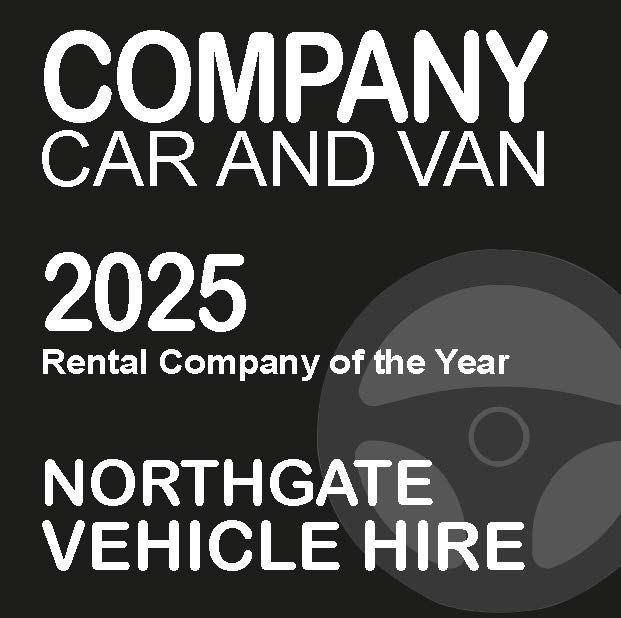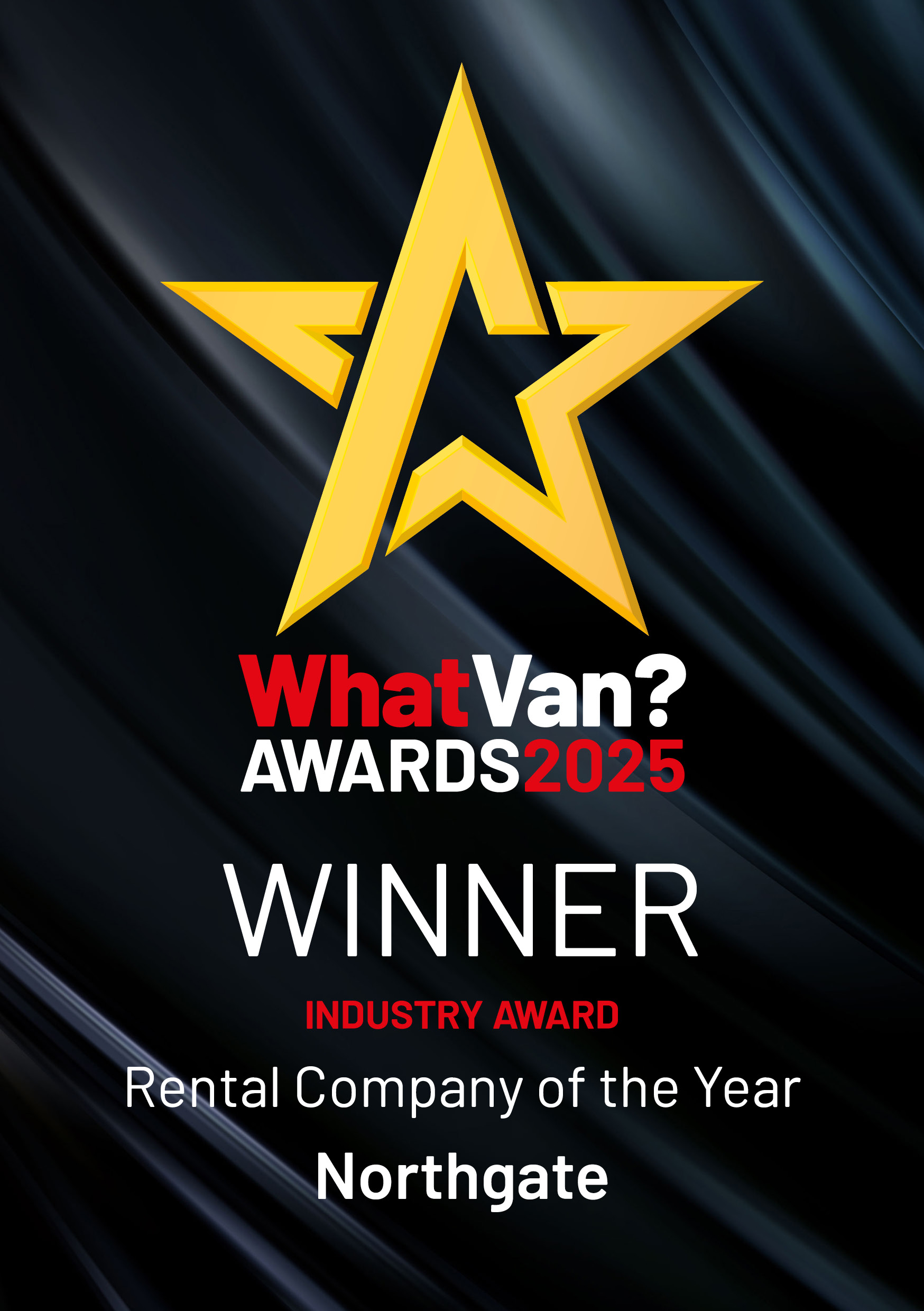Electric Vehicles: Colin Herron answers businesses' top questions
![]() 08/06/2021
08/06/2021![]() 10 minutes read
10 minutes read
We interviewed our Guest Electric Vehicle expert Dr Colin Herron to get his insights on key questions being asked by businesses. If you have been wondering when to make the switch and what the future might hold, here are your answers.
Northgate Vehicle Hire: Will businesses have to stop using diesel and petrol vehicles?
Colin Herron: The answer is that you do, and you don’t. However, all businesses will eventually unless they plan to cease trading in the next ten years. To be honest, it comes down to how fast you want to adopt the technology, how you use your vehicles, what types of journeys, and what your customer wants.
…all electric is 15 years from now unless the van makers accelerate the change
NVH: Will businesses have to switch to electric vehicles?
CH: The current vehicles will be sold until 2035 when to meet regulations they will, in simplistic terms, need a plug. After 2035, they must have a plug but can have an engine and after 2035 they cannot have an engine unless there is no viable alternative. So, all-electric is 15 years from now unless the van makers accelerate the change. This means all business will have to make the switch eventually. Technically, if vans with Internal Combustion Engines (ICE) are still sold up to 2035 you can hire, buy, or lease them.
It will be possible to still buy a second-hand conventional vehicle after 2035, but there is no information or predictions on the supply of diesel or its expected price.
NVH: Do electric vehicles have residual value?
CH: Very good question. This is a big unknown due to the embryonic state of the market. The second-hand diesel market post-2035 might be buoyant with many who want ICE vans that they will run to the end.
NVH: Will my customers want to see my business use electric vehicles?
CH: The answer is yes and the change to EV will be driven by many factors, not just legislation and as such are out of the control of a fleet manager. Local authorities will add clauses to supply contracts that will require only compliant vehicles. Corporations will, for their own environmental credentials, be requesting their contractors use environmentally-friendly vehicles.
NVH: What are the main advantage for businesses making the switch to electric vehicles now?
CH: EVs aren’t just environmentally friendly, there are several good reasons for switching now. Let’s go through some of them.
- EVs can be great for your brand image and making the switch early is likely to give you a first-mover advantage. Particularly with COP 26 taking place in Glasgow this year, this is a perfect time to sell green credentials. EVs have a positive perception among customers, staff, and the public.
- Beginning your transition to EVs now means gaining valuable experience for making a mass move soon.
- EVs offer a fantastic driving experience. As a driver of an EV myself, I find them less stressful than conventionally fuelled vehicles. They are about as easy to drive as a normal automatic but also very quiet.
NVH: What is an Emission Zone?
CH: In recent years, UK, devolved and local governments have looked to introduce measures to improve air quality. One such measure available to local authorities is Emission Zones. Known by various other names in some parts of the UK – including Low Emission Zones (LEZs) in Scotland, the Ultra-Low Emission Zone (ULEZ) in London or Clean Air Zones (CAZs) across other parts of England and Wales – Emission Zones are a defined area where targeted action can be taken to improve air quality, deliver health benefits and support economic growth.
NVH: So, will low Emission Zones require electric vehicles?
CH: This is highly dependent on decisions made by local authorities. There are different types of low emissions zones in the UK, namely Clean Air Zones (CAZ), London’s Ultra Low Emission Zone (ULEZ) and Zero Emission Zones (ZEZ).
NVH: What clean air measures can you expect in a low emission zone?
Potential activities undertaken within an Emission Zone can include:
- Optimising traffic management, such as changing road layouts to improve traffic flow and encourage active travel;
- Ensuring local planning decisions take account of the Emission Zone and are consistent with air quality ambitions;
- Monitoring of air quality and pollution levels within an Emission Zone;
- Signage and publicity; and
- Supporting the take-up of low pollutant emission vehicles.
Perhaps the strongest tool available to local authorities implementing an Emission Zone is the ability to enforce restrictions on motorists – including through charging schemes for higher emitting vehicles – to encourage the cleanest vehicles to operate within the Emission Zone boundary.
NVH: Can you tell us more about ZEZ?
CH: A ZEZ is a low Emission Zone where only zero emission vehicles are allowed. In such areas, all internal combustion engine vehicles are banned; this includes any plug-in hybrid vehicles which cannot run zero-emission. Only battery electric vehicles and hydrogen vehicles are allowed in a ZEZ, along with walking and cycling and fully electric public transport vehicles, such as trams, electric buses, and other similar green vehicles. However, current ZEZ allows non-ZE vehicles if they pay to enter, an example being Oxford.
The (Oxford) ZEZ pilot will restrict polluting vehicles from key city-centre streets during the day. Those who drive polluting vehicles into the zone will be charged, with the level of charge depending on how polluting the vehicle is.
There are about 250 local authorities, and it is up to each one of them in terms of what low emission is implemented and when. The big authorities will certainly change first. London has set the way with the Ultra Low Emission Zone (ULEZ) and others will follow.
NVH: In that case, when would you expect to see Emission Zones being implemented?
CH: Coming out of COVID there are local pressures from business not to stifle a return to economic growth. There have been delays in implementing Emission Zones, but the first few are already on their way. Bath, Birmingham and London are among the first, with many more to follow.
More about our author
Dr Colin Herron, MD Zero Carbon Futures, Visiting Professor Newcastle University
Colin has worked in or with the automotive industry for nearly 48 years with 16 years as an engineer at Nissan. Since 2008 Colin has specialised in EV either project managing infrastructure roll-out or researching vehicle technology. Currently MD of a small not for profit consultancy Zero Carbon Futures owned by Newcastle University where Colin is also a Professor
Take the next step toward an all electric fleet
SPEAK TO THE EV TEAM










